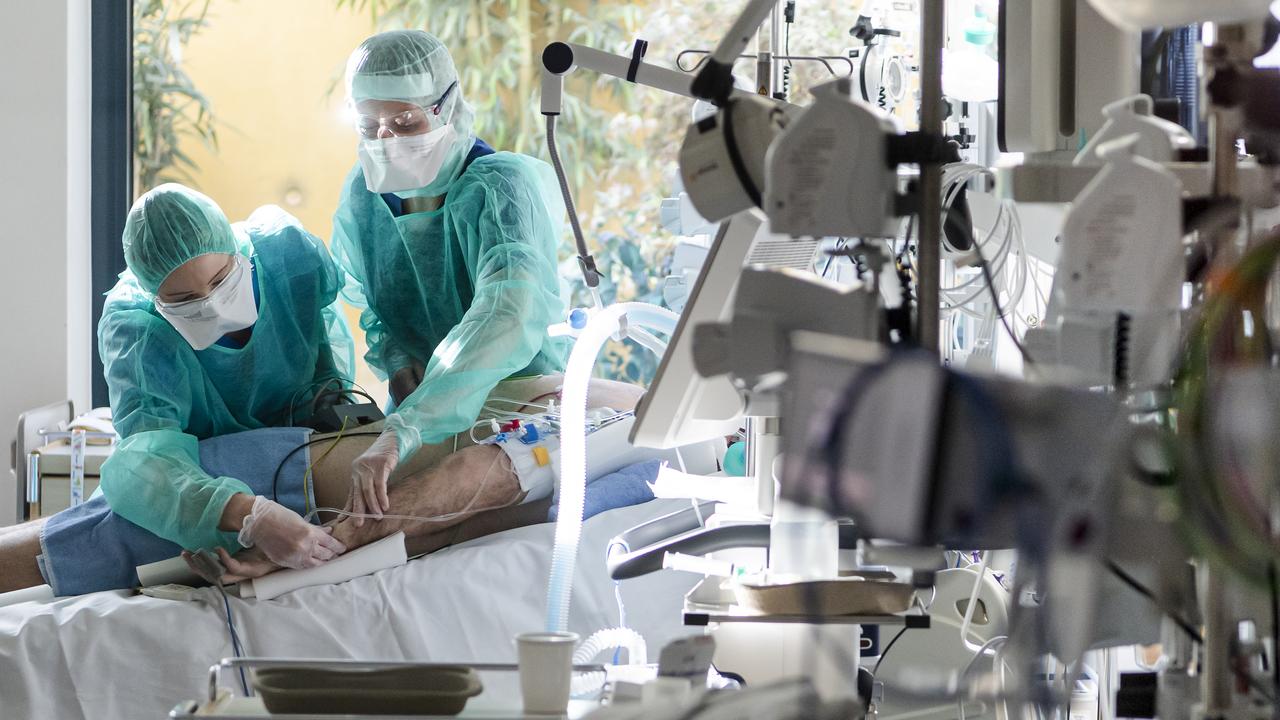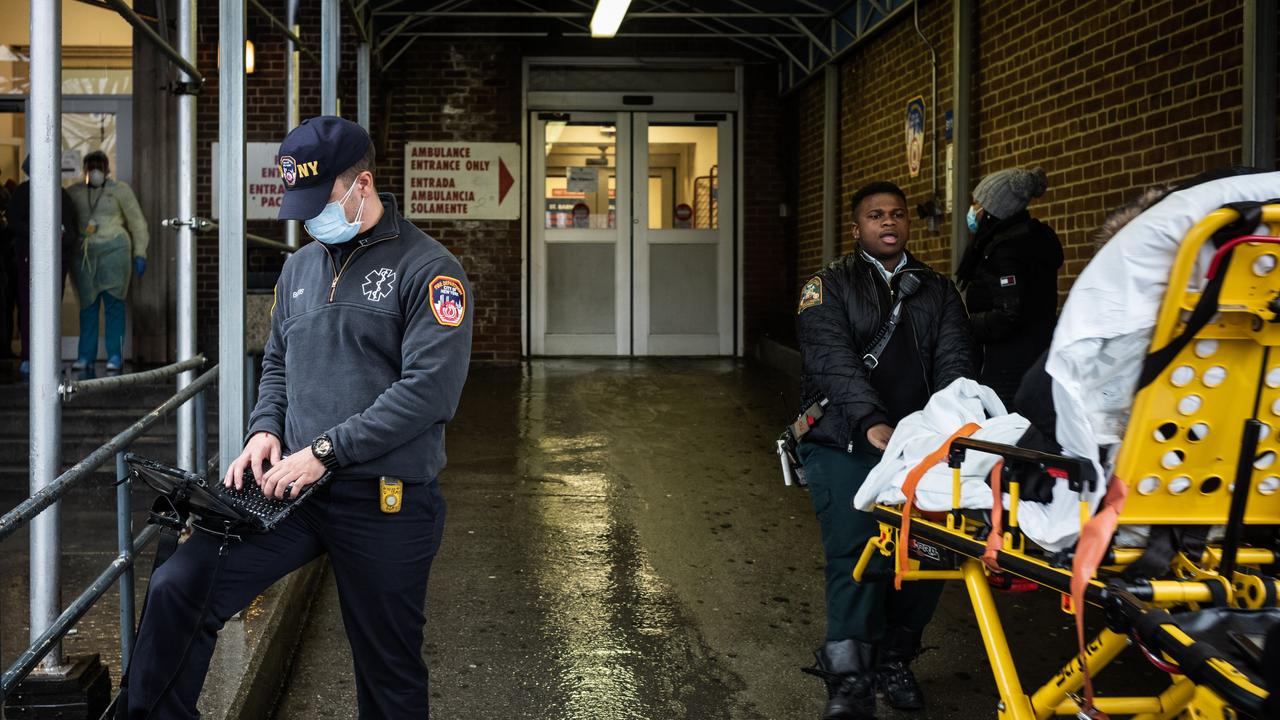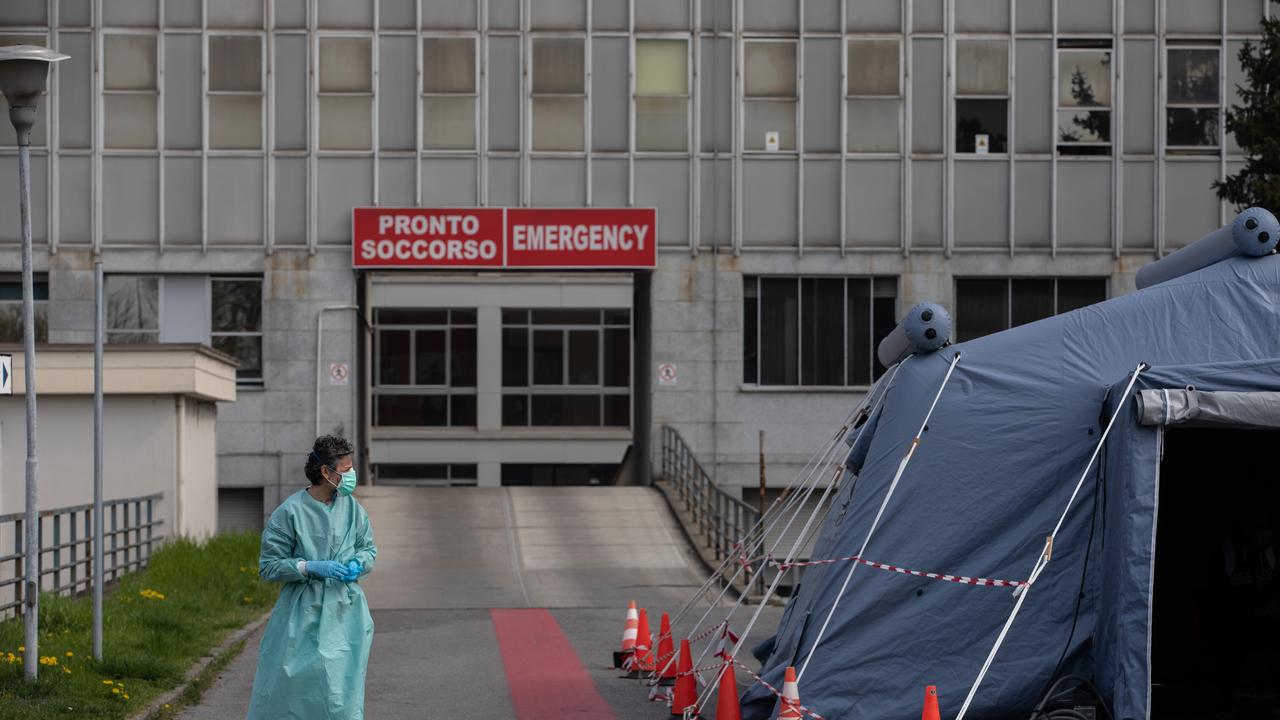Coronavirus Australia: What doctors will do when they can’t treat everyone
Australia could run out of ICU beds by April 10. If that happens health care workers will have to make the difficult decisions about which patients to treat. Here’s how they’ll do it.
As the coronavirus pandemic spreads around the world some countries are struggling to cope, and health care workers are making some of the most difficult decisions of their careers as they are forced to choose who to treat.
That’s why Australia is implementing the drastic measures we have seen announced in the last few days, in the hope that we can prevent the virus from spreading to the point that it overwhelms our health system.
If that does happen, as it has in harder hit countries, most notably Italy, there are procedures in place to help health care workers make that decision.
But according to the director of the Queensland Bioethics Centre at the Australian Catholic University, Dr David Kirchhoffer, it’s not as simple as following a procedure.
“The question, as is often the case in ethics, is more complicated than it appears,” Dr Kirchhoffer told news.com.au.
RELATED: Follow the latest coronavirus updates

RELATED: Extraordinary virus restrictions imposed
RELATED: ICU beds could run out within three weeks
He said most people who have visited an emergency room would be aware of the procedures that already exist.
“This is usually based on an assessment of whose need is most urgent based on consideration of factors like who is likely to suffer the most harm without treatment, who is more likely to benefit from treatment, and who might be able to obtain the required treatment elsewhere,” Dr Kirchhoffer said.
There are also procedures to deal with patients that refuse treatment, or who are unlikely to benefit from it.
The problem presented by COVID-19 is the risk that comes from the health system becoming overburdened and simply unable to care for everyone.
“If two people present at emergency at the same time with acute respiratory distress that is likely to kill them, and there is only one ventilator available, a decision must be made about who gets the ventilator based on a clinical assessment of who is more likely to therapeutically benefit from treatment,” he said.
Similar decisions are already being made when it comes to testing for COVID-19.
“The shortage of diagnostic kits for COVID-19 means that only people who are deemed to meet certain criteria are being tested. We simply cannot test everyone,” he said.
While some reports have characterised what’s happening in places like Italy as the elderly being denied treatment because they’re too old to benefit, Dr Kirchhoffer warns against making critical care decisions based solely on blanket criteria like the age of the patient.
“Every case and context should still be assessed on an individual basis regarding the likelihood of therapeutic benefit relative to the context … if one of the people was 60 but otherwise fit and healthy, while the other was 25 with a severe pre-existing life-limiting condition, it would make no sense to use only age as the criterion upon which to base the decision to treat.”
He said in order to make that assessment accurately, the decision should be made by people closest to the situation — who can make the decision based on the context.
There’s already examples of this occurring, again in relation to testing.
RELATED: What is social distancing?

RELATED: All your questions about coronavirus answered
RELATED: How ‘flattening’ the curve saves lives
Currently health authorities decide what criteria people should meet before they can be tested because they know how many tests are available, where they are and who is likely to be infected. But general practitioners dealing with individual patients make the decision on whether they meet those criteria and should be tested.
In an emergency room context, Dr Kirchhoffer said it’s usually the decision of the clinical team treating the case or the most senior doctor.
That’s not to say patients and their families don’t have a say in the matter too.
“Typically, these decisions are, as far as possible, to be made with the informed consent of the patient if they have capacity and are competent, and with relevant others, for example family or people with executive power of attorney for health matters … where disputes arise, and time allows, escalation procedures are in place to obtain second opinions or to refer the decision to a higher authority,” Dr Kirchhoffer said.

RELATED: What are the coronavirus symptoms
But while procedures are already in place to ration health care and treatment when necessary, Dr Kirchhoffer warns there could be dangerous consequences if those procedures are blindly followed.
“The greatest long-term danger of healthcare rationing is probably that we might start to think differently about the worth of certain people in our society,” Dr Kirchhoffer said.
“We are in danger of allowing the current crisis to change the way we think about certain groups of people in our society and the rights that they have … we are in danger of losing sight of each other as humans.”
That’s particularly important for doctors and other health carers.
“We provide medical care to all because we believe that all human beings have equal dignity, that is, the same inherent worth. They are not reducible to their economic value or utility. They are beyond ‘price’. There is no age at which one ceases to possess this dignity,” Dr Kirchhoffer said.
“We must ensure that we do not allow the current public health crisis and the need to think carefully about how best we use health resources to be translated into a legitimisation of practices or ways of thinking that diminish the worth of any group of human beings.”



